Historical storytelling, retold in such a way that is going to connect people. Connect us to the humanity of each other and, ultimately, morally make people question everything.
Jermaine Fowler is the founder of The Humanity Archive. He has spent his life in pursuit of knowledge earning the nickname “the professor.” He is an author, speaker, and storyteller sharing the untold stories of history.
After years of dedication to scholarship and storytelling, Jermaine launched the website and podcast, which has been praised as a must-listen by Vanity Fair. He goes “outside the textbooks to find stories that are recognizably human.”
His new book, The Humanity Archive: Recovering the Soul of Black History from a Whitewashed American Myth releases February 28, 2023.
“You get a lot of ancient books…that still hold value because they speak to those human elements within us all. Things like truth telling or things like honesty, things like integrity, like those undying values and or even human suffering. That’s universal.”
[00:00:00] Mike Ganino: There is just something about a great storyteller. Someone who knows how to weave together, the important details. Leave out the ones that take us out of the story. And then actually pull up a microphone, pull up a stage. And keep an audience's attention when retelling things like history. And so I was very excited to have the conversation here today with a person who I think is one of the greatest storytellers of our time.
[00:00:38] He has a podcast called The Humanity Archive and he's the author of the brand new book, The Humanity Archive: Recovering The Soul of Black History From a Whitewashed American myth. Jermaine Fowler quickly became one of my favorite storytellers on the internet. When I started listening to his episodes, talking us through history that we didn't know.
[00:01:00] And retelling history that we thought we knew. So in this episode, I talked to him about where his ideas come from, how he does the research required to tell these kinds of stories. And then ultimately what inspires the way he puts them together. When he pulls up the microphone and starts to talk to us all. If you have any place in your business where you use storytelling onstage, on podcasts, then this is an episode you're not going to want to Miss . This.
[00:02:00] Jermaine Fowler: They used to call me the professor when I was a kid. I used to walk around with my dad's briefcase. And both of my parents were teachers, , educators in the public school system. So I think I saw that example growing up of them, , with this passion for education. So I think that's where that spark came from within me.
[00:02:17] But then on the same ticket, I was from the generation that was sold this idea that you can have upward mobility through going to college and you get a degree and you'll get a good job based on that degree. So I might have been the last generation who believed that was the dream that you could attain just by , getting a college degree.
[00:02:34] So I went to college for things that I wasn't really passionate about , I was just trying to start a career and get a job. , I probably, if I could go back, I would've went for a sociology or something of that nature. But just thinking about, just tied to career and money and making a living I did something that, I felt like I could make a living with.
[00:02:52] So coming back around, full circle now at this point in my life, I could hear that voice, the young Jermaine calling back like, “Hey, this is what you really wanted to do. Why don't you use these opportunities with the internet and being able to have your own platform and just put it out there and see what you can do.”
[00:03:07] So that's how I got where I am today.
“ I was from the generation that was sold this idea that you can have upward mobility through going to college and you get a degree and you'll get a good job based on that degree.”
[00:03:10] Mike Ganino: And where he is today is seemingly everywhere. His podcast, The Humanity Archive has been listed on every, like who's who in the world of podcasting, including in 2020, when Vanity Fair named it one of the eight podcasts to deepen your knowledge of black history. His new book, The Humanity Archive is coming out with Simon and Schuster and has been named by Essence Magazine, one of the 31 books you must read this year.
[00:03:37] Did you know that it was this, that it was looking deep into history and retelling and sometimes not even retelling, telling for the first time to some of us these stories.
[00:03:45] Was that really clear from the beginning?
[00:03:47] Jermaine Fowler: Yeah, definitely because I've always had that interest in history, so it literally like 80% of my bookshelf for like stories from history, history books, biographies, different things like that. So I was always tied into that and plugged into that, anyway. It just made sense with the educational interest to tie the two together and take that love of history and then that tradition in my family of educators and education and bring the two together.
[00:04:12] For this new digital age, I guess I would say.
[00:04:14] Mike Ganino: Yeah. And so did you have a clear idea right off the bat of because you had done some beginnings of it a couple years ago, you said. Did you know, that, that audio, did you say audio is the way to do this is how people are consuming, or what was the interest in doing it in the, in this format, podcasting.
[00:04:30] Jermaine Fowler: Just seeing the trajectory of podcasting, right? I saw a couple years ago that it was something that was really taken off and I had heard some engaging storytellers and just different types of podcasts and saw the breadth and depth that it could be used for . So I definitely and then accessibility too, right?
[00:04:46] You don't have to get a job at a radio show. You don't have to get a job at a TV station to broadcast yourself. So I'm like, wow, this is a great opportunity. I can't miss this. I can't just, it's a lot of the, I'm 36, so a lot of the younger generation, they're eating this up, right?
[00:05:00] And getting all these influencer opportunities and different things like that. And I'm like, Hey I'm not gonna just let them have all the fun. I wanna get in here too and actually use the internet and, you know, the this awesome digital opportunity to get my stories out and build a brand out of that.
[00:05:13] Mike Ganino: And since starting The Humanity Archive, Jermaine has gone on to create a popular Patreon, which I've been a member of that includes lessons and behind the scenes ideas from the show, he has a four week history course, A Journey Through Black History, that's available as well.
[00:05:29] And also his brand new book, The Humanity Archive Recovering The Soul of Black History From a Whitewashed American Myth. So i was curious if the goal all along was to create this source of community and to take things beyond just the podcast .
[00:05:45] Jermaine Fowler: I think the, again, it ties back to that education part, right? Because I didn't just want it to be a storytelling thing only, like the, this idea was just this entertainment. I wanted it to also be something that, that has this idea of a deep education, what the ancient Greeks might call a padea.
[00:06:03] Like this deeper sense of education, not just the surface, shifting from the frivolous to the serious. So while it does have that engaging, entertaining aspect to it, I think the community is where, like you said, you could take a deeper dive. You could go to other articles that I found or curated.
[00:06:19] You can ask critical questions that can maybe make you question your own ideas about what you learned in history, about even what you believe sometimes. So I definitely wanted and needed to have that aspect to the storytelling as well, which is where the community is grown out of.
[00:06:34] Mike Ganino: Yeah. And what have you found as you've, if people are, if someone's listening and they're thinking, oh, wait a second, that's an interesting way to, to round out what I'm doing, whether they have a podcast or they're doing some kind of, videos or something, what would your advice be for somebody who says, wait a second, I'm in the community aspect is really interesting to me.
[00:06:50] Any big learnings you've had so far in creating that?
[00:06:54] Jermaine Fowler: I think at some point it is necessary for anyone to show the value of what you're doing to get that kind of community base and tie it around what you're trying to brand or what you're trying to do.
[00:07:05] It only made sense. It's like a natural trajectory as I saw my audience growing to create like this special place for them that they could go and dig deeper and get to know more about me. It may not be something that someone might wanna do initially, just get out there at first.
[00:07:19] But eventually though that community aspect I think is important for anybody trying to do this.
[00:07:24] Mike Ganino: Yeah. And it seems that the topic, the history, that you're retelling and weaving into narratives, is also really rich for this kind of deeper work. To go in and say, okay, what did I, because you could just passively listen to a show, but I think when someone does a really rich job of really not just being entertainment, but really teaching something, there's value in being able to go deeper on it.
[00:07:47] And I think that's one of the things that I've really enjoyed is, after I listen to an episode and I pick my jaw up off the ground a lot of times saying, wait I didn't know that. Or, oh, that's interesting. That's different than I heard it, or I've never heard of this. To have somewhere to go with it I think has been really helpful.
[00:08:01] Have you heard that from other people?
[00:08:03] Jermaine Fowler: Absolutely. I've started to get different people with ideas and different stories they want told or me to maybe go deeper into some of the stories. So I think that from that, I think I might want to start having more bonuses, for the community, as I, I finish an episode. Maybe just riff a little bit more and go deeper.
[00:08:20] And just dive deeper into the topic. So I've definitely got interest from, the audience so far, as far as hey, yeah we want more of that, that's definitely something I wanna, I want to get into.
[00:08:29] Mike Ganino: On The Humanity Archive, Jermaine has covered lots of different topics from the black death to Pocahontas to Dr. Martin Luther King Jr. to the great migration t o Japanese internment camps. So I was curious where his ideas came from. Where did he read a part of history and say, huh? That needs some looking into.
[00:08:55] Jermaine Fowler: I think with the Black Death, tying it in, I always try to tie the history into the current right. And I think we generally, generationally and culturally sometimes suffer from like a historical amnesia where we don't see the pastness in the present, we don't see, that the past does have effects and consequences on the present.
[00:09:15] So I think the underlying theme for everything that I do, because I have a very broad interest, so I could be picking and choosing from all different points in history. And I always like this one quote to go on a tangent real quick that says historians or history is almost like if you were fishing right.
[00:09:29] You, Mike would fish in a different part of the ocean. You'd use a different net. So you're gonna come up with a different types of fish, a different perspective. So for me to fish in my part of the ocean, so to I wanted to share my unique perspective. So even though, The way my mind works, I just have such a broad interest.
[00:09:45] I'm fishing everywhere, right? But it's always gonna be that Jermaine perspective. And again, one of the underlying things that I try to tie in is how to connect that to present events so that it can have an impact on people's lives now. So with the Black Death, with the Ida B Wells with all those shows, it's always trying to connect it to the present no matter what the topic is.
[00:10:05] Mike Ganino: Yeah, it feels almost I remember seeing the Black Death episode and I thought, one, one, when you listen to your episodes, I wanna talk about this in a minute too. The depth of research is so clear. And so I remember hearing that and thinking, is this guy like a prophet? Because how did he put together this thorough of a conversation around this thing that.
[00:10:22] Feels like it's going on now, and the episode was dropping right as things were really heating up . And I remember thinking that. And so the idea of taking not just history and telling it in this really compelling way, but also saying, how does this relate to today I think, is unique.
[00:10:38] You don't see that a lot. And it feels it makes it all more, I know listening to some of the episodes I've felt very like, ah, this is, there's electricity in the air around this topic right now and you're talking about it. It's really compelling.
[00:10:50] Jermaine Fowler: I think that's too why, you get a lot of ancient books, right? That still hold value because they speak to those human elements within us all, things like truth telling or things like honesty, things like integrity, like those undying values and or even human suffering, right?
[00:11:05] That's universal. That doesn't really, it's not boxed in by time place or anything. So I think that's why a lot of these ideas resonate, right? Cuz if you can talk about a black death and talk about human resiliency and talk about how wow, some people actually made it through that. Like one of the most, or the most devastating , pandemic that ever existed on earth.
[00:11:25] Like people made it through that. So it offered us some hope. Then hope being another thing that's universal and timeless to, to us now. So I think that's probably why it connects as far as just tying in those themes.
“I feel like we're experiencing somewhat of a moral blackout. Not really tied so much to religion, but just, that deep sense of human brotherhood, sisterhood, that deep sense of humanity how we can connect together cross-culturally.”
-
[00:11:36] Mike Ganino: Yeah. Yeah. And it's you were talking a minute ago about fishing and how, if we're, or if we're gonna tell the same story and I go fishing, you have fishing, we're gonna be in different areas. And so pieces of it might be similar, but pieces are gonna be different because of our own.
[00:11:49] What we look to, what we look at and say, oh, that's interesting, or our perspective. What would you say is the Jermaine Fowler perspective when you're reading something? And by the way, this is a guy who for pleasure, seemingly reads Plato. Not the same stuff I'm reading but when you when you are reading something, what is it that you're, what is the lens that you're looking through that you're saying, okay, this is how I'm, this is what's resonating.
[00:12:13] This is where I'm finding interest in how I would wanna retell it.
[00:12:16] Jermaine Fowler: I think there's a couple of things for me. I always try to have a moral energy behind a lot of the stories that I tell. And I think sometimes when I look around, I feel like we're experiencing somewhat of a moral blackout. Not really tied so much to religion, but just, that deep sense of human brotherhood, sisterhood, that deep sense of humanity how we can connect together cross-culturally.
[00:12:38] Across differences, across boundaries, and use these stories to bring us together. Like that moral energy drives me having, again, an imagination that, that's tied to sociology, that, that knows that there's structures and systems that affect people. And that really have nothing to do with them personally, but that already exist, that, that are affecting them positively or negatively.
[00:13:00] So trying to tie that aspect into it those are just a couple of the things that I always tie into my perspective. And then ultimately, just trying to teach the audience historical thinking again, how to know and see that there, there are events that have happened before us that, that have an effect on us now.
[00:13:16] Or not only that, how can we learn from, people who came before us. There's people who've done some great things. There's examples. We need examples. Not really to make anybody a hero, cause everybody had flaws, but just to see wow, maybe they did something better than I can do it and I can learn from them.
[00:13:31] So every walk of life, know what matter what you're doing. There's some example you can look to in history to guide you.
[00:13:37] Mike Ganino: And is that part of what stands out to you when you're, because again, you've, you have such a range of people that you've covered and topics that you've covered, and even some things that you've just covered from a certain perspective, like the episode, The Socrates episode, which is like specifically about questioning injustice.
[00:13:51] So it's not just like historical biography, it's looking at it through a lens. So what is it that when you're looking and saying, okay, I'm gonna f I'm gonna fill my schedule with these episodes, how do you go about finding them? Cuz you've got thousands and thousands of years of data to pull through.
[00:14:12] Jermaine Fowler: Yeah, that's an interesting question. I appreciate you asking, and I think for that I think my standard is telling untold stories or retelling stories that have already been told through a perspective of me, and say for instance, the Socrates questioning justice just by reading through Socrates and being able to say, wow, like he is a man who questioned injustice in his own time.
[00:14:38] And then I see all these injustices happening today. How can I tie that Socratic way of thinking to today? And then it just seems so relevant whenever, when I'm able to do that. Sometimes I surprise myself like, wow, I've made that, that interesting connection there.
[00:14:51] I don't think most people probably would think of Socrates and think of the injustices that we have going on right now especially today. Yeah, I think that's an interesting aspect to be able to look at these histories and always being able to tie them together. So that's something I always try to do.
[00:15:04] Mike Ganino: And and there's this interesting thing, I think, that we sometimes look at it through our lens and we think, oh, I'm, no one's ever dealt with this before, or, oh, there's never been a time like this. And in a lot of ways you're saying actually, there were some times like this and we could look at them and learn a little bit.
[00:15:18] Jermaine Fowler: Absolutely. Absolutely. The past. It is interesting because when you look back at it, I think it's easy to look back however many years ago and lose the empathy. And lose the connection. And that's part of my storytelling though, is like, how can I bring a path though? Like how can I bring an energy and a passion to the story to try to hit somebody in that center of feeling, in that center of even pain, cause a lot of history is painful.
[00:15:43] Right. , so there was somebody that said that history is just full of suffering because of the blood and the tears and the, all the, these sufferings that people have had. So how do I how do I bring that to life so that, if you see somebody's story, especially who's different than you that'll make you connect with them.
[00:15:57] So that, that's something that I always try to do as well. Most of the stories I pick are untold stories of history, right? Women, indigenous, black people, just any marginalized community. Those are the stories that I really try to seek to uplift and put forth for people.
[00:16:12] Mike Ganino: It's interesting too the the like I learned so much in episode about Crispus Attucks, who was a, was one of the black American patriots of this country, and, and even Ida B. Wells. I wasn't really, I didn't know. I think maybe somewhere in my life I'd seen the name, but I didn't know a lot about her.
[00:16:31] And so there's something interesting because there's also that element of, in these untold stories, it's not just that there's an untold story of oh, hey, here's this thing. It's, wait a second. What you thought was happening is nowhere near what it was. So it gives you a chance to re-look. I know I have in listening to the show, to re-look at what I think is true today based on relearning what happened in the past.
[00:16:51] And that's, like what a really interesting gift to be able to give people to say, Hey let's rewire some of this that you've thought.
[00:16:57] Jermaine Fowler: Yeah. Yeah, I think that's one of the missing aspects. From, I guess the academic history. It probably would be that storytelling that could add those layers of richness to the story. So when you're just kind of reading it in a book, sometimes everything doesn't always come, especially the academic writing.
[00:17:13] You know that the nonfiction type of writing that we get . And that, that's another thing that I harken back to. There's this storytelling tradition in West Africa and the historians there called Creoles, right? So it's strange, but they would almost balk at written language, right?
[00:17:28] Because they say that it doesn't have that human to human connection doesn't have that vibration of the word. I look back to that legacy and that tradition and say, wow here's some people who just were full of knowledge. They're like walking encyclopedias. They have a rhythmic musical kind of way to their storytelling.
[00:17:44] And that, that tradition and legacy there is something that I look back to and hold to be my standard as well, to try to be this like great historical storyteller, this person who's important in the community to tell the stories and help people learn from history and reach back to, to bring the things forward that can help.
[00:18:00] Mike Ganino: So let's talk about that. Because the reason I reached out was because I think that what you just said, that you learned in this West African tradition of storytelling is exactly how I feel listening to you on the podcast. There's, it's not just somebody talking on a podcast about, oh, here's some things I learned.
[00:18:16] It's like full on performance art, dude. You are vocally delivering, you are giving us energy, you are riding this wave. And so I, there's a lot of people who listen to the show who have podcasts or they go on Facebook Live and I think there's something powerful to talk about in how you approach it from a performance perspective, because I imagine you're sitting in a room alone talking into a microphone.
[00:18:35] Jermaine Fowler: Absolutely.
[00:18:37] Mike Ganino: Tell me about that process of how you the performance side of it, because it really does feel like performance art in a way.
[00:18:44] Jermaine Fowler: Yeah. Yeah. I'll just give you the formula honestly. There's the, just starting back from the beginning, there's the idea, right? So if I'm thinking of Socrates wow, here, I want to do that story. There's the research phase where gathering all my books and gathering all my sources I even use like Cornell notes whenever I'm taking my notes from the books just to try to keep everything organized.
[00:19:03] Some books I'll buy and highlight in some, I'll just get from the library or whatever, but I'll ha literally have a stack of 10 to 15 books and some articles saved, in folders on my computer. And then I'll go ahead and start writing, right? So I'll script the episodes. But, then when it comes to the recording, I try to allow myself a freedom there.
[00:19:22] I do have it scripted, but I think the performative aspect comes from me going off script sometimes and allowing myself to really feel the stories. Because again, there, there's so much emotion in some of these stories, especially the Ida B Wells story. That was some painful stuff to deal with, with the legacy of lynching.
[00:19:39] Just all that pain and then the courage too, of Ida B. Wells to go up against that and fight that, not almost have to be a robot, to not have some emotion behind that. So I just allow that to come out and try to be vulnerable. Vulnerabilities is a big thing, which is hard for me cause I'm like to myself, introverted, keep this face on, but when I get on the mic, I just really try to let myself be vulnerable to the emotions that I feel when I read these things and, just try to tell the truth and then have that integrity within the storytelling as well.
[00:20:05] Mike Ganino: Yeah. It feels like listening to it, it feels like you're in conversation with a friend. That it's a friend who's sharing something they learned. That it's oh my gosh, you won't believe what I just discovered, versus, like a history channel lesson. It feels that way.
[00:20:17] Jermaine Fowler: the curiosity comes out as well. Like that awe and that surprise. So I think that comes just from my love of history in general, I think. That, that, that passion comes out in the way of you ever heard somebody who could literally talk to you about something you care nothing about? Maybe it's a lawnmower or something.
[00:20:31] They know how lawnmowers work and they can take 'em apart. And you wouldn't have listened to this from like a Ben Stein with a monotone voice and just, talks about the here's a lawnmower. But if somebody's engaging, they really feel it and they really love it. Like they could talk to you about a lawnmower for an hour and you'll sit and listen to 'em, right?
[00:20:46] I think there's a little bit of that too, since, I do love history so much and I have so much excitement when I get a new history book. I'm like, a kid with a toy. So I think that probably comes out as well, and that's probably part of what makes it engaging.
[00:20:58] Mike Ganino: And it's such a gift to all of us because you are doing all the research and bringing us these lessons in a way that's I can really listen to this. I can really take this away. And so what is the amount of research that you, so when you're thinking of an episode, how deep is that?
[00:21:12] Are you, how many hours of research are you going through to produce a 30 to 45 minute episode?
[00:21:19] Jermaine Fowler: Oh man. I love the research too, so that's a big thing where I have to stop myself sometimes cuz I might get too many books or I might find too many sources just cause I love the digging aspect. It's almost being in a gold digger and you strike gold, you get a gold nugget, and then you want to keep digging more, even though you've got probably enough nuggets you don't need anymore.
[00:21:37] But, I just keep going. So I have to set time limits for myself because one thing I wanted to do, and one thing that kind of made me get stuck at first was I was spending too much time on the research phase. And I realized if I really wanna turn this into something though, I've gotta, balance my time out.
[00:21:51] But usually, I shoot for at least 10 books, maybe at least a four to five articles. I try to access different research journals and different things like that for scholarly articles as well. And just mix that in with maybe more news articles and then the, with the physical books as well.
[00:22:07] Mike Ganino: Yeah. And so when you first start researching, is it clear, do you go in with a clear angle or does that kind of reveal itself to you once you're into a topic you say, oh, I wanna learn about this person, and then the angle reveals itself? Or do you go in saying, I know what this is about?
[00:22:23] Jermaine Fowler: I think so. It's not a start out the angle in the beginning. And then as I, I'll have an interest in a story and then the angle will definitely come out as I'm researching, as I'm thinking, as I'm writing and scribbling down notes. Usually that manifests itself.
[00:22:37] probably within the first couple of days of the research. I'm like, wow, that's something I really wanna center in this story, again, to connect it with people today. So it definitely comes out as I'm researching
[00:22:48] Mike Ganino: and have you been in the middle of researching something? And then, so I just recently read The Deviant's War by Eric Eric Cervini, I think. And it's about the, in the 1950s, this guy who was an astronomer for the US government who was gay. And then it's this whole thing of the court cases against Hoover and the FBI like clearing out gay people.
[00:23:09] And so it was really interesting cuz it's this guy's fight, to basically have his job back as like the lead astronomer in the country. And it's a fight for that. And so like the book came out, just recently and then we just had the Supreme Court case. And so I was reading it during that. It was like, is this dude a prophet?
[00:23:23] Because these things are linked. So have you done that where you've been researching something and then something happened, you thought, oh shoot, okay, this is now connected to this.
[00:23:31] Jermaine Fowler: Yeah, and sometimes it's easy though because history repeats itself, right? We're seeing a lot of these things over and over again. T here was just some ruling, it got overturned right by Donald Trump. That had to do with I think trans rights. And then, we come full circle now and then you l link that.
[00:23:45] So if I was doing a story like that, I might link that to, this incident . So that kind of is the formula right there. And it's sad, honestly. Cause you're, you not, I don't want that to connect. I don't want this stuff to still be happening. But it is, so it makes it easy to connect the dots there.
[00:23:59] But yeah, the connections are always there. They're really j ust in your face a lot of times. So it's easy to connect those things for me. Just like you did.
[00:24:06] Mike Ganino: Yeah. Yeah. It's, it's interesting too because it's, there's the passion that you have for it when you're speaking, you can hear that in your voice. There's the research that you've done, clearly at least on what you're presenting, you're an expert because you've done all of this work.
[00:24:23] It's very clear that it's well researched. Walk us through how you shape the script though, because again, the reason that I reached out to you is because I thought there's no one. – there's a lot of these serial podcasts and things like that are going on and on, and they're very good, like episodic over the course of a season, and I had never heard anybody doing per episode storytelling on a topic in the same way that you do.
[00:24:46] So how do you approach telling this story and weaving it together? Because it's real hooky. Like in five minutes I'm like, wait, how is this gonna turn out? And then five minutes later there's a new thing that I'm like, wait, what about this now?
[00:24:57] And I really do. I sat in my driveway listening to the Ida B Wells episode cuz I was listening to it in the car. I got home and I was like, I'm not done, and I gotta see where this goes. I gotta learn more about this. So I sat in the car, my husband was like, what are you doing? Where you on a call? I was like, no, I'm listening to a podcast.
[00:25:15] He's you were listening to a podcast. I was like, yeah. I, it would be like leaving an episode of Law and Order in the middle. It's I gotta figure out what happened. So what is your, how do you approach the storytelling, the weaving of the narrative?
[00:25:27] Jermaine Fowler: Man, that's a good question. So it's all started with an outline. I'll try to just skim through the books that I get and just start laying out a basic outline. I look at it like a painter, painting and even drawing.
[00:25:42] I've studied a little bit of drawing jack of all trades, master of none when it comes to that. But, sketching you start with your outline, your shapes, everything starts from a basic shape, takes form. So if you're drawing a person, the head starting with an oval, and then you might draw a little circle for the nose, a little circle for the eyes.
[00:25:56] It's just like that with the storytelling, right? So start with the outline, maybe, beginning, middle, and end. What does that look like? And then how can I start to flesh out and start adding those details, to that outline. So that's exactly the process as far as like how I begin to get these details and flesh these stories out.
[00:26:13] Mike Ganino: and have there, has there ever been one that, that what you sat down to record, what came out at the end ended up being so different because you were writing that story through the creating of it vocally.
[00:26:25] Jermaine Fowler: The endings I think the endings almost come when I'm almost finishing, right? Cause I always try to look back at what I've said up to that point and be like, how can I best wrap this up? What's the best way to sum this up? So one of 'em, I use a quote from somebody I think, and then maybe, another one might end with a question, but, I'm always looking to like, how can I leave people wanting to dig more or know more or learn more?
[00:26:49] Just really sum this up really concisely. The whole point of the show or the whole story, like how can I sum it up really?
[00:26:56] Mike Ganino: If you're listening to this and you're thinking of how do I use story? How do I weave in story? Go and – a ll of the episodes of the Humanity Archive are such a masterclass on how to do it. And it's really well done because it's I think a lot of people think they're telling stories and they're not.
[00:27:10] So this is just gorgeous. Did you ever think that you would be in a, in a, in an addition of Vanity Fair when you started this?
[00:27:16] Jermaine Fowler: I definitely aspired to but I didn't see yeah, I'm gonna be in Vanity Fair one day, but I'm very glad that, that it's being recognized. Just to see that people are like, listening to it. Cuz sometimes it's if a tree falls in a forest and nobody hears it, then it doesn't make a sound.
[00:27:31] So that's how I began to feel with the podcast. I've had like my inner circle telling me like, Hey man, this is really good. This is, I need to keep going. But until you start getting a little traction and getting that wider audience and that wider recognition then that kind of validates it a little bit more and then, propels you, or comp compels you to keep moving forward and move forward even better and bigger than you did.
[00:27:51] So I think that's definitely something that, that's done for me. It's wow that's awesome. That's a really big milestone for me and a great milestone.
[00:27:58] Mike Ganino: It's huge. To think of Vanity Fair is, that's as big as it gets in so many circles, so that's huge. And congrats by the way on that.
[00:28:04] Jermaine Fowler: I appreciate it. I appreciate it. But honestly, this one point to that though, the one of the – even above the Vanity Fair, though sometimes it's just, the compliments from fans, just real people who are like, wow, man, this made such an impact. I had this teacher and she had reached out to me with this fairly long email like, Hey, I'm gonna use this for my class.
[00:28:25] These stories aren't being told in the class, I wanna try to get this to the principal. So even those stories may have even more of an impact on me touching people at an individual level than a Vanity Fair. As strange as that might sound.
[00:28:36] Mike Ganino: I love that. That's, but again, that goes back to you said in the beginning of the show that, that when you were little, you had your dad's briefcase come from a family of educators and people called you the professor. That's exactly a professor thing to say of Yeah, vanity. Vanity Fair is cool, but did you know there was this one kid who heard me?
[00:28:50] That's that's the heart of it all, isn't it?
[00:28:53] When you, how have you approached marketing the show? Because again, when you think of like historical storytelling, I'd imagine that when people first hear that, they think, oh, sounds cool. Before they hear it. Cause once they hear it, I think you're hooked.
[00:29:06] But what's been your approach to getting the word out to marketing the show? How have you done that?
[00:29:11] Jermaine Fowler: Yeah I do have some marketing background and business background, so that's been helpful. But as far as the marketing, create a lot of graphics, for my Instagram page and really try to, right now I'm leaning more into like collaborations, right? So finding other people who are doing, not exactly the same history, the same circles I guess as far as, something that touches on history.
[00:29:32] So I've been having some successful relationships built there recently. That's grown my audience tremendously. Outreach, I'm reaching out to, to locally and trying to get in historical circles here and grow it locally as well. Just anything. I can though, like any marketing tool available to me, I try to use it, whether it collaborations or, growing on social media reaching out to different people who write about things like what I do.
[00:29:57] Definitely though those are some of the things that I've been doing.
[00:30:00] Mike Ganino: Yeah, the the, one of the things I love is the Instagram account. So the Instagram account is The Humanity Archive, and on there, it's educating e even with people that aren't on the podcast. So it's covering topics and things. I was excited. One of, one of the people I remember learning about in my early twenties when I first was exploring the world was Bayard Rustin.
[00:30:22] It's in the book I was talking about earlier, The Deviant's War. He talks about him in the book as well, and then you covered it on one of the posts in your Instagram account. It was, there's not an episode about it, but even the Instagram account is a place where people are coming and learning. And so it's such a truth to what you're trying to do in a way.
[00:30:40] Jermaine Fowler: And that was a collaboration there with a site called Uncolonial History. So I think for anybody out there who, whatever your niche is, to find other people who are doing something similar than you, who also have an audience, and then combining forces like just.
[00:30:55] Thinking about a way that you all can collaborate in some way. So for us it was like, let's each find a couple of posts and then you write some, and I'll write some, and then we'll just cross post those to our audiences on Instagram. So you definitely gotta be creative in your collaborations and think about how you can come together with people within your niche to grow both of your audience simultaneously.
[00:31:14] So it's a win-win.
[00:31:16] Mike Ganino: Yeah. I love that idea. And for people that are listening, that's like a good takeaway is to say, Hey, who else is serving the people you wanna serve? Who else is working in the space you wanna work in? How can you support each other and lift each other's workup? I think that's, there's not, you don't see that a lot, and I think it's, why wouldn't you leverage that the.
[00:31:33] One of the things I've really loved about the show is how there are themes. There are several episodes that look at the same topic from multiple different angles, or maybe from different players that would have been involved in that piece of history. So i was curious about Jermaine's approach to looking at both sides, at covering different angles and different perspectives and different places where people might have seen that piece of history from.
[00:31:57] Jermaine Fowler: That's you get this version of history. It's a lot of times it's Eurocentric. It's tells one narrative. I was actually looking and flipping through this book the other day. It was like a K through 12 book I saw when I was out just in, in a bookstore.
[00:32:13] And it's, all the perspectives like, life in the colonies or the Revolutionary War. It's just all, just that one perspective, especially American history or US History. How can I break through to people because I know the interest is there.
[00:32:26] The interest is, there. I get it all the time. Like people love to hear these stories that they didn't hear. A lot of people are frustrated that they didn't hear different types of stories in school. That the questions always come up as though, how did I not know about this? For me, just knowing for instance West Africa in general, you know about the renaissance, you know about knights and shining armor, about chivalry, all these words associated with medieval Europe.
[00:32:48] Like, why don't we know anything about medieval Africa? There was these great empires and these masters of gold who traded and these wonderful caravans of camels that traveled across the desert trading. There's some amazing stories and that are just as interesting as like the Medieval Knights and Fighting Dragons and Merlin and all these things that everybody knows about, right?
[00:33:09] There's a zill – you could turn on your TV right now and see King Arthur this, or all these shows that are associated with medieval times of year. But nobody knows about medieval Africa. So that to me is like a need and a gap and in an opening, it's like I have to feel that, right?
[00:33:24] I have to tell those stories in the most compelling way possible. Cause even if they were told they, they didn't really catch anybody or the people didn't do it in a way that, that really caught on. So now that's what kind of drives me.
[00:33:36] Mike Ganino: And do you feel that responsibility to say, I need to find a way to, to tell this, that it's not the audience's job to pay attention. It's my job to serve it to them in a way that gets them hooked. Do you look at it that way?
[00:33:46] Jermaine Fowler: Yeah, I think I do take a journalistic approach in that way. It is you wanna obviously tell the truth of the story. That's one aspect, but it can't be dry, right? It has to be engaging, it has to be compelling. So I think that's where, that other part of myself clicks in okay, again, I have to study the craft of storytelling.
[00:34:03] I have to look to other storytellers, to other writers and take tips from them and use them as examples, to be the best storyteller I can be. So I'm holding myself up to a very high who's the best storyteller out there, right? So when I wanna listen to them, who's the best speaker out there?
[00:34:16] I wanna listen to them and, see how they do it so that I can do it just as well. So I always hold myself to a very high standard in that way.
[00:34:24] Mike Ganino: There's that line from Lin Manuel Miranda's Hamilton that says, “Who lives, who dies? Who tells your story?” And I think what a lucky person anyone would be to have jermaine Fowler, be the one who tells your story because it's just, again, I'm fanboying here.
[00:34:38] And so with this next season, we what are the, run us through, like the topics, what are we gonna dive into here? Because I think there's a lot of people who are listening who probably looking for this kind of information and I think in so many ways, a lot of people have been awakened to recognize wait a second, I need to go.
[00:34:55] I can't just sit passively. I need to go find places to learn from. And so if you're that person, if you're listening, this is a great resource. You should go listen to the podcast, join the Patreon community.
[00:35:05] At the time we recorded this Jermaine was just getting ready to release the second season of The Humanity Archive. And so I was curious at what stories he was really looking forward to telling and what he had planned for the show at that point.
[00:35:18] Jermaine Fowler: There's some amazing stories out, out of West Africa. And one of 'em is the story of Mansa Musa, who's thought to be the wealthiest person, whoever lived. And there's a lot of firsthand accounts of him and this great caravan trip that he took to Mecca and his empire.
[00:35:33] And then there's another story of the founder of the Mali Empire called Sundiata. And it's a epic kind of like a, A Homer's Odyssey or a Bayou Wolf for one of those that you might have heard of. But this is like a epic of West Africa tradition. There's some very compelling stories there. I want to dive into a couple of more stories from women's history and uplift a couple of more stories from, women just specifically.
[00:35:54] And then finally, I want to tell the story of war. Because I see in history like war's, probably the most talked about topic, right? But again, it's only talked and talked about from one perspective, like World War II, we did this and all the glory and the fighting and this battle and that battle.
[00:36:12] But I want to tell it from the other side, right? What about the anti-war? What about the protest award? What about those real stories of suffering in war and like the bad side of war, not just this glory and, all of that. So I wanna take a different approach to a common theme and just put that Jermaine spin on it. And try to do it in such a way that is going to connect people to, to the humanity of each other and, ultimately morally, make people question like, is war even something we should even be considering as an option in a lot of ways.
[00:36:40] That, that's what I wanna do with that.
[00:36:42] Mike Ganino: Yeah, and there's this on that topic, but really on, on a lot of them there's this idea of what we're presented with is often presented as the only option at the time. That was the only option at the time. And I think at least in our shorter history, it's like the one person we all think of who was like, wait, there's other options is we think of that during Vietnam War, but not really anywhere else.
[00:37:00] And we think, oh, Jane Fonda, she was maybe right way back then, but we don't really think of that with any of the other wars and you have to assume that existed throughout the whole, every single time we've been pulled into that kind of action. There must have been other options.
[00:37:16] Jermaine Fowler: Counter to that. There's, any time there's oppression or war, there's always like the anti, there's the other side. And a lot of times you don't hear, like you said, the Vietnam War is well documented, the anti-Vietnam War campaigns and all these communities that sprung up in opposition to that.
[00:37:31] And then, what happened to the students at Kent State, like all that is known. Like you said, having that counter narrative throughout history for a lot of the other wars. I, I don't think you get that either. So you that's a, that's an excellent point you bring up and that's what I wanna speak to.
[00:37:43] Mike Ganino: I love that. I love that. And so each of those are, each of those buckets are gonna be like a themed month, right? There'd be a couple episodes and some learning around it for the whole month.
[00:37:51] Jermaine Fowler: Exactly. That's how I planned it out. Just all focusing in on that. So I'm gonna write put the Mali Empire, I'm gonna write some articles to go along with it. I'm gonna curate probably some other articles to go along with it. Maybe I'll have a study guide a workbook or just something like that.
[00:38:05] And a lot of these ideas now cuz I don't think either you can just look at what you do. You have to look at people who are also doing other things. So even though I'm a historical storyteller. What are marketing, what are marketers doing? And one thing that marketers do a lot is they'll provide a lot of free content, right?
[00:38:21] They'll provide free eBooks, free different things like this, and then it'll be tied to, a community or something where you might be able to pay and get a little more value. So that's one of the examples I look to like marketing as a whole and what marketers are doing to, to.
[00:38:34] To promote. So that's where the whole like e-book study guide, resource kind of thing came from just through how marketers use e-books and stuff like that. But I'm like, wow, what if I do that and apply it to history and like have a history sort of e-book, for fans who wanna dive deeper.
[00:38:48] I'm always looking to other industries as well to see how I can incorporate those things. And that's a lot of times where I come up with some of what may seem like an innovative idea. But it's only innovative in that nobody's thought to apply this to like history or education.
[00:39:01] Mike Ganino: And so where do you, I always get excited when I meet really talented people and I think, oh they could do this. They could have this, they could have this. What is that? When you look at it right now and you think of where this goes next? What else? What do else do you hope to create?
[00:39:16] You're creating great content. You're gonna create, continue to create community and bring everyone along with you as you learn. Where do you hope, if you were to put a pin and say, this is a big thing I think could happen with this.
[00:39:26] Do you have any thoughts on that?
[00:39:28] Jermaine Fowler: Yeah. I think leaning into, to writing more and more is something that I want to do. I really wanna start into freelancing maybe, and write for, eventually, ultimately, I'd love to freelance for some major publications and, but write about some of the same things that I'm talking about for them.
[00:39:44] Public speaking or just live shows and different things like that. Definitely those speaking, writing more, a book at some point would be awesome, right? If I could just take all these learnings and all these things that I'm doing now and roll them up into a book that, that would be great and something I definitely aspire to.
[00:40:00] Hopefully you'll all see that one day.
[00:40:02] Mike Ganino: Is there as we wrap up, of all of the people you've covered, if you could actually interview one of them live. If you could say, I'm actually gonna get to interview this person. Do you know who that would be?
[00:40:13] Jermaine Fowler: So far I think it would be Ida B. Wells, just because of the sheer amount of courage that she had to just face people who like, literally she had to go into exile. Because of some of the things that she was writing and just challenging just head on, people who, we're talking about lynching here, so people who literally, would've taken her life probably had she stuck around too much longer.
[00:40:33] But then she still continued that, that fight and to display that courage and I'm sure she was scared just like anyone else. And I'm sure she had fear, but she didn't allow that fear to have the last word. That's somebody I'm like, how did you do it? Like, how did you muster that courage, to make it through that?
[00:40:47] I'd love to sit down with her and interview her.
[00:40:50] Mike Ganino: And that was in the in one of the last episodes from season one was your covering of that
[00:40:56] Jermaine Fowler: Yeah. The last episode, see episode 8, Ida B. Wells.: No More Lynching was the title of that. And just speaking to the the 19th century, just Jim Crow and just all the things that she dealt with and just trying to fight against the mass lynching of black people in America.
[00:41:10] So she was a fore bearer forerunner of the Civil Rights Movement and just an amazing figure, amazing person to study.
[00:41:17] Mike Ganino: and even it's like one of the things that I didn't realize, we all, today we hear of the NAACP and we've heard of it and we know it, and this was a founder who is also a female. And it's like, there's this whole, what a just what a icon that most people haven't heard of.
[00:41:33] Jermaine Fowler: Yeah, no, you think about it too, what does that do? What does that do for, let's just say a young black girl when they don't hear that story versus if they did grow up hearing that story, that provides an example like, maybe I can found an organization or maybe I can be involved with, nobody's associating even this.
[00:41:52] just big organization like the naacp even with women in general, right? I don't think anybody really probably would think about it like that. But I think to be able to look back and connect yourself to examples like that for any group, it's gonna help your group self-esteem. Cause there's a lot of people who may have high self-confidence, but they don't ha they might look at their group and say I don't like the group I'm in.
[00:42:12] And that's a lot to do with. Those structures that tell people that you look wrong. You're got the wrong lips, you got the wrong hips, you got the wrong skin color, you have the wrong sexuality. Like all those things that kind of bombard us from kids. That's another thing I'm trying to fight back against is like by telling all these different stories of history, I can help people have more of a confidence and a positive look at whatever group they're in.
[00:42:36] So whether that be women, whether that be black people, whether that be indigenous people. To be able to tell those stories cuz you know, if that history's erased, then that, that's why they erase that history. Cuz if you erase the history that people have nothing to connect to and they're nothing but, you bring them back to something if you can retell those stories or tell those stories for the first time.
[00:42:53] So that's that identity is something that I think I aspire to as well.
[00:42:58] I'm just a conduit, I think and just somebody who's just relaying these stories. But I'm hoping I can inspire, I'm hoping I can connect people and help people see that common thread that we all share as humans.
[00:43:08] I think is my main goal and what I hope to be remembered, that I inspire people through my storytelling.
[00:43:13] Mike Ganino: You can learn more about Jermaine and his work thehumanityarchive.com. The book, The Humanity Archive: Recovering The Soul of Black History From a Whitewashed American Myth is available wherever books are sold. And you can check out the podcast, The Humanity Archive, wherever you listen to podcasts. Thanks for checking out this episode we'll see you next time.
-
Book: The Humanity Archive, available February 28, 2023
-
TikTok: @thehumanityarchive
Patreon: @thehumanityarchive
“Why don't we know anything about medieval Africa? There was these great empires and these masters of gold who traded and these wonderful caravans of camels that traveled across the desert trading.”
My approach is all about transforming your relationship with your voice, body, and story. It's one thing to write about it - it's another to take a breath and speak the words out loud.
Ready for your close-up?
You don’t need a speaking coach, a formula, or to follow someone else’s steps. You need feedback about how the audience experiences your ideas, your presence, your story, and your speech.
That’s what a keynote director does.


Browse by category
In the world of performance, the director gives “notes” which include specific, actionable tips for the performers.
Musings and dispatches about creativity, storytelling, and finding more meaning as a public speaker.
A podcast with storytellers, public speakers, and performers about the art and science of saying something.
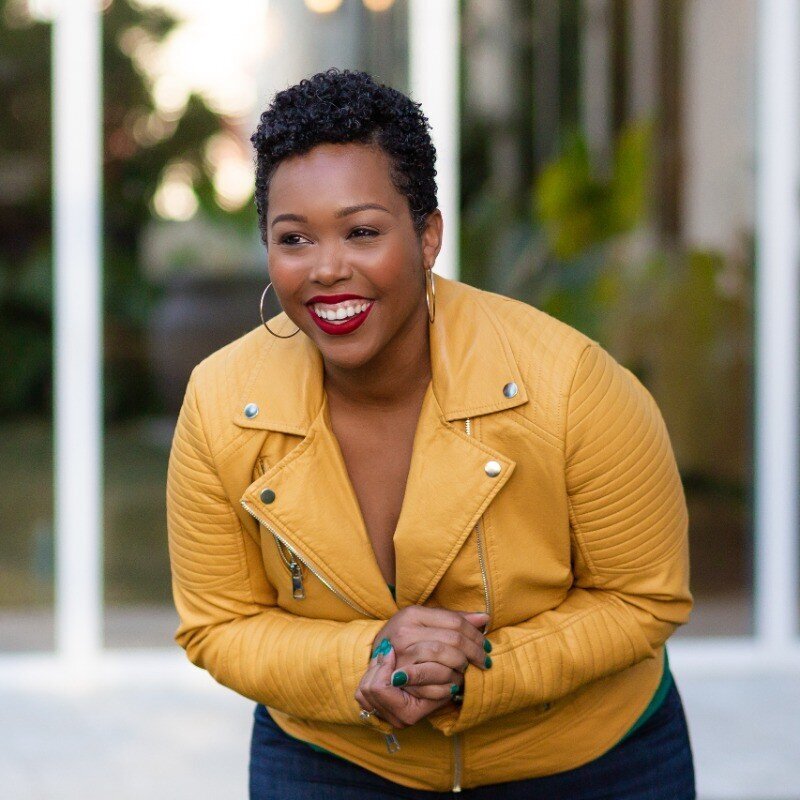



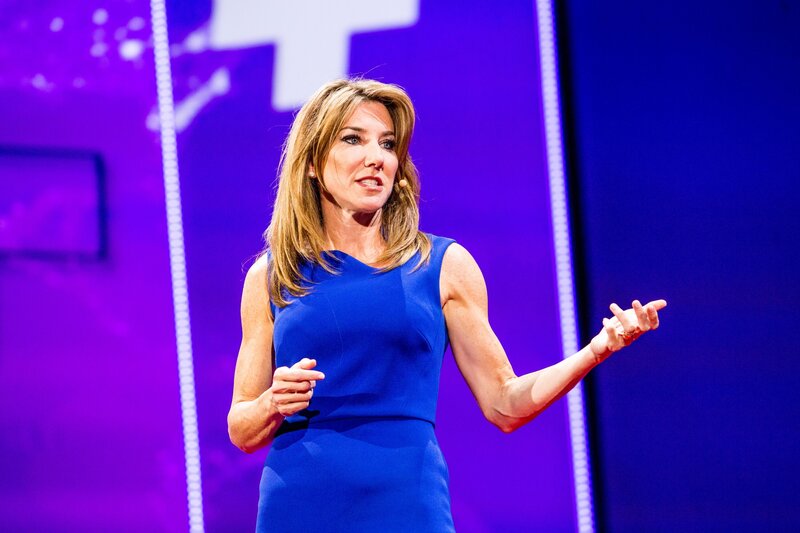



"Mike helped me create the signature keynote I'd been dreaming of giving. He was so skillful, artful, creative in helping me create a #mikedropmoment."




“He should have charged me 5x as much because the VALUE I received was so astounding!”
“Working with Mike made me more compelling, more motivational, more relatable, and more myself”
WORD ON THE STREET
— Erin King, Bestselling Author & Top-Ranked Keynote Speaker
— Tiffany Lanier, Change and wellbeing keynote speaker
— Laura Gassner Otting, bestselling author and TEDx speaker
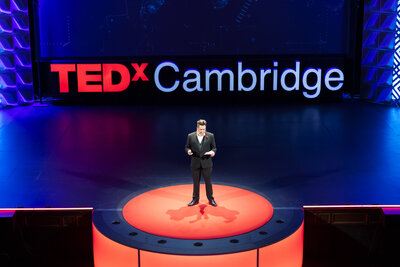
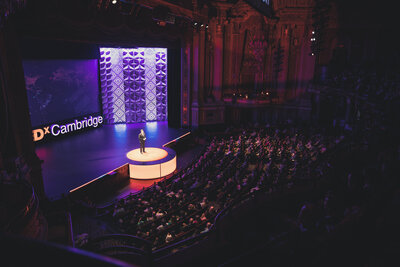
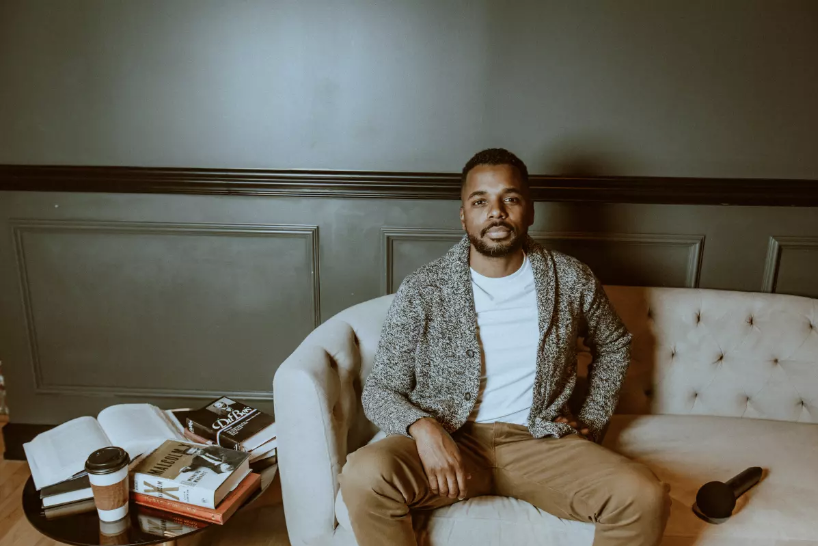


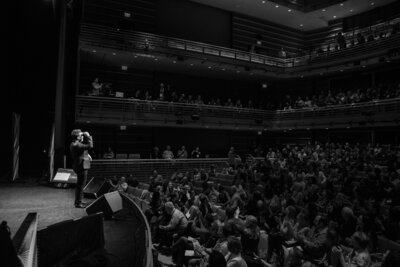

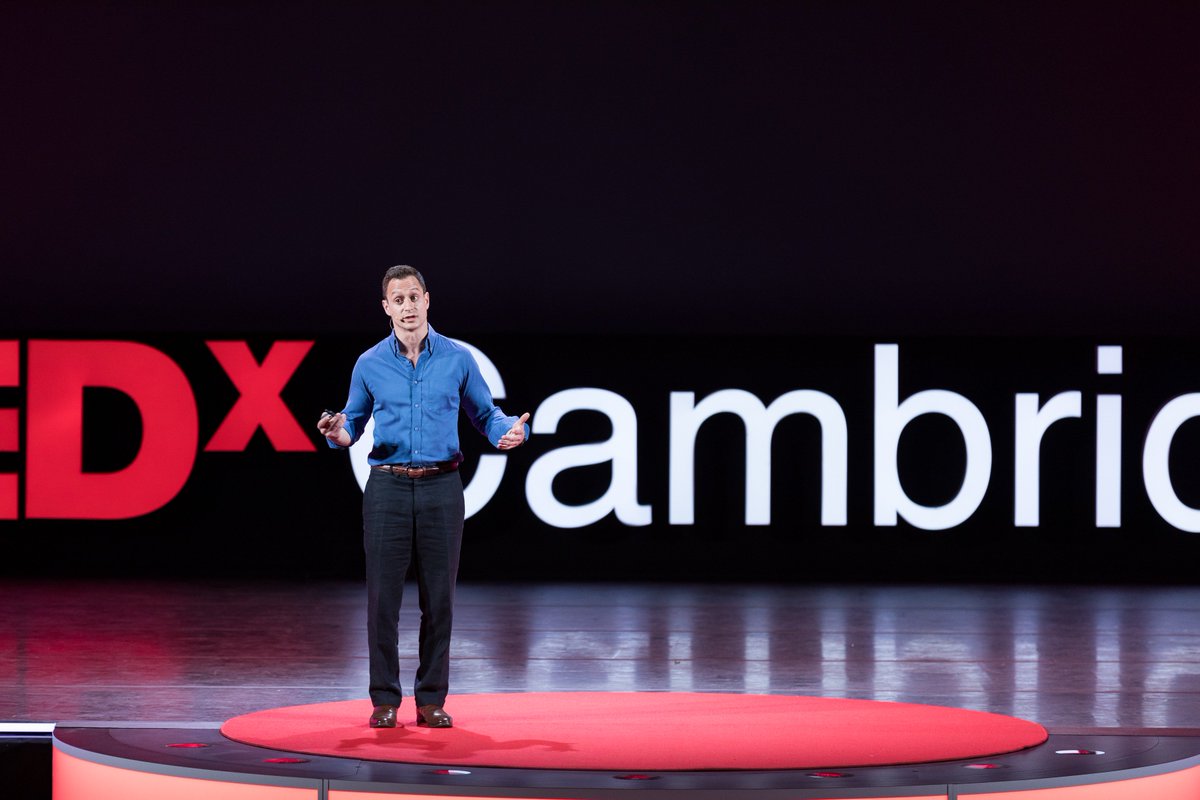
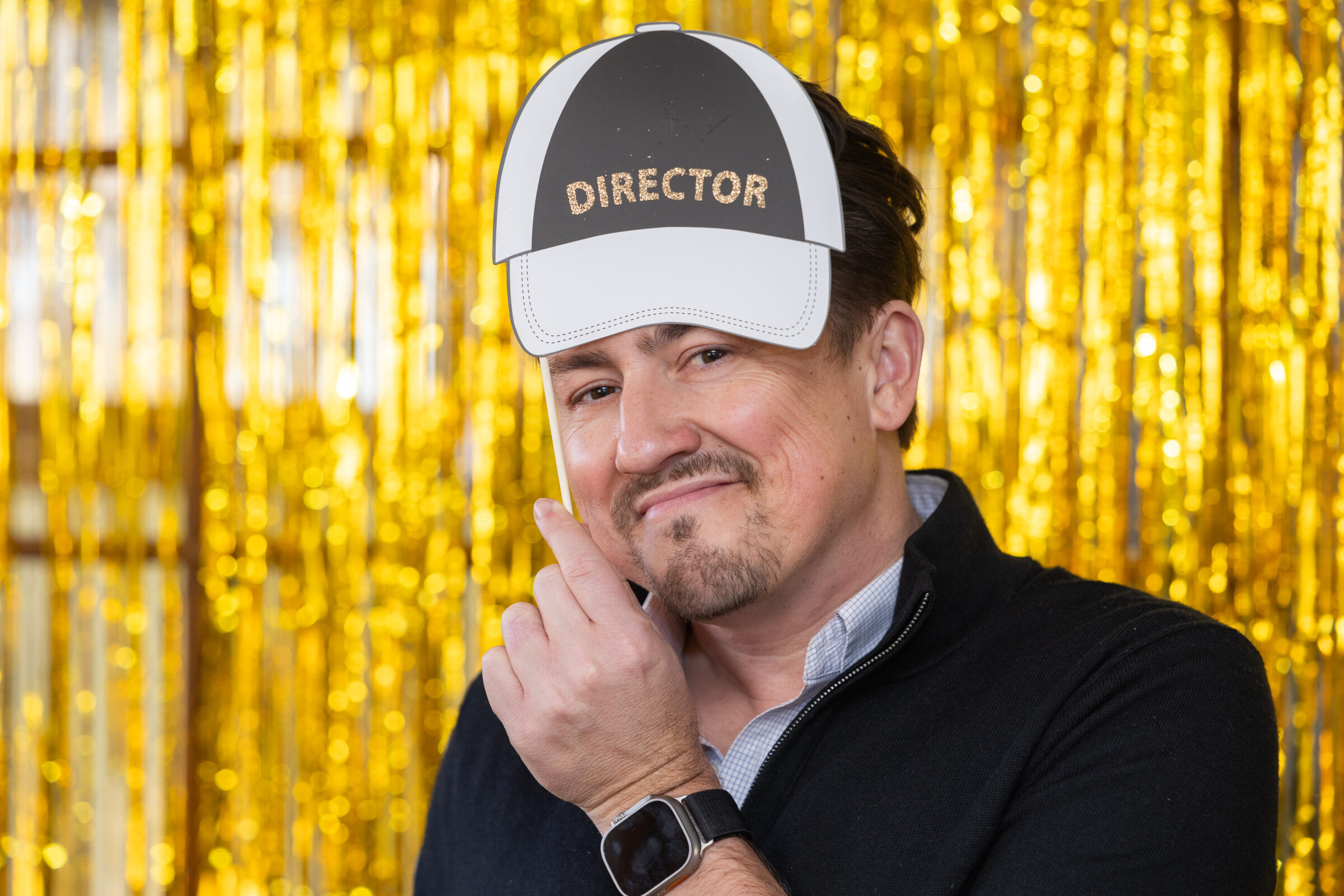
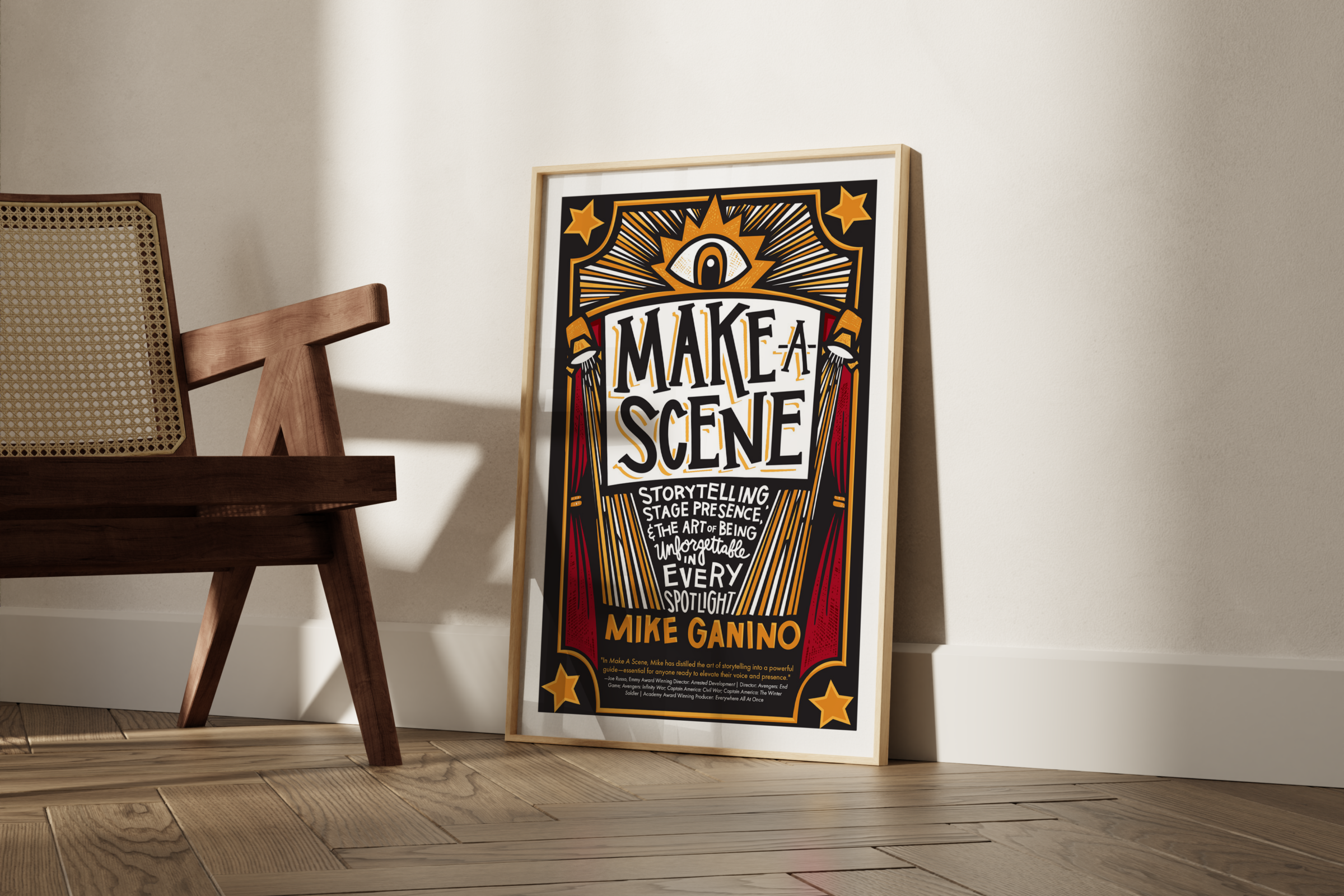
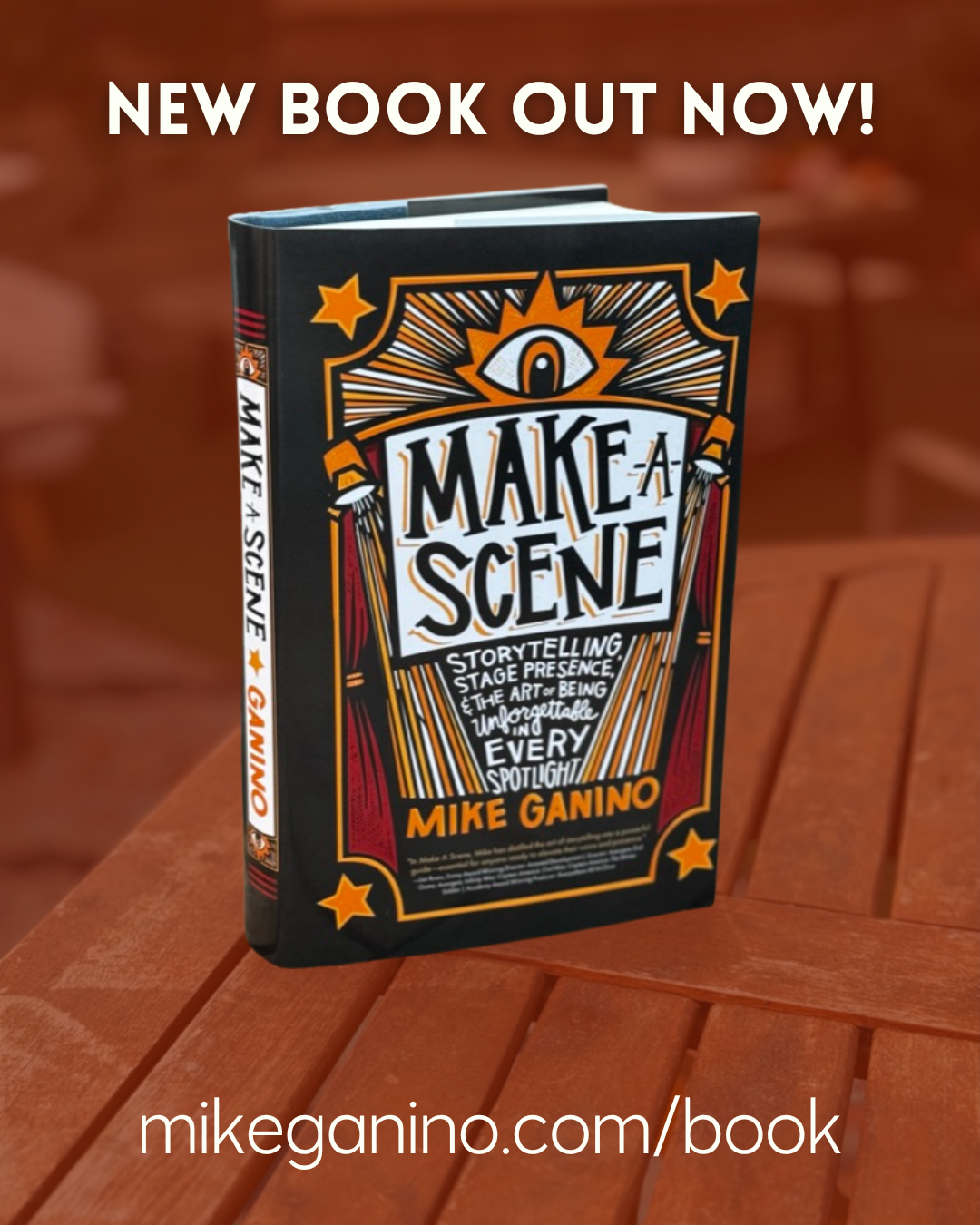
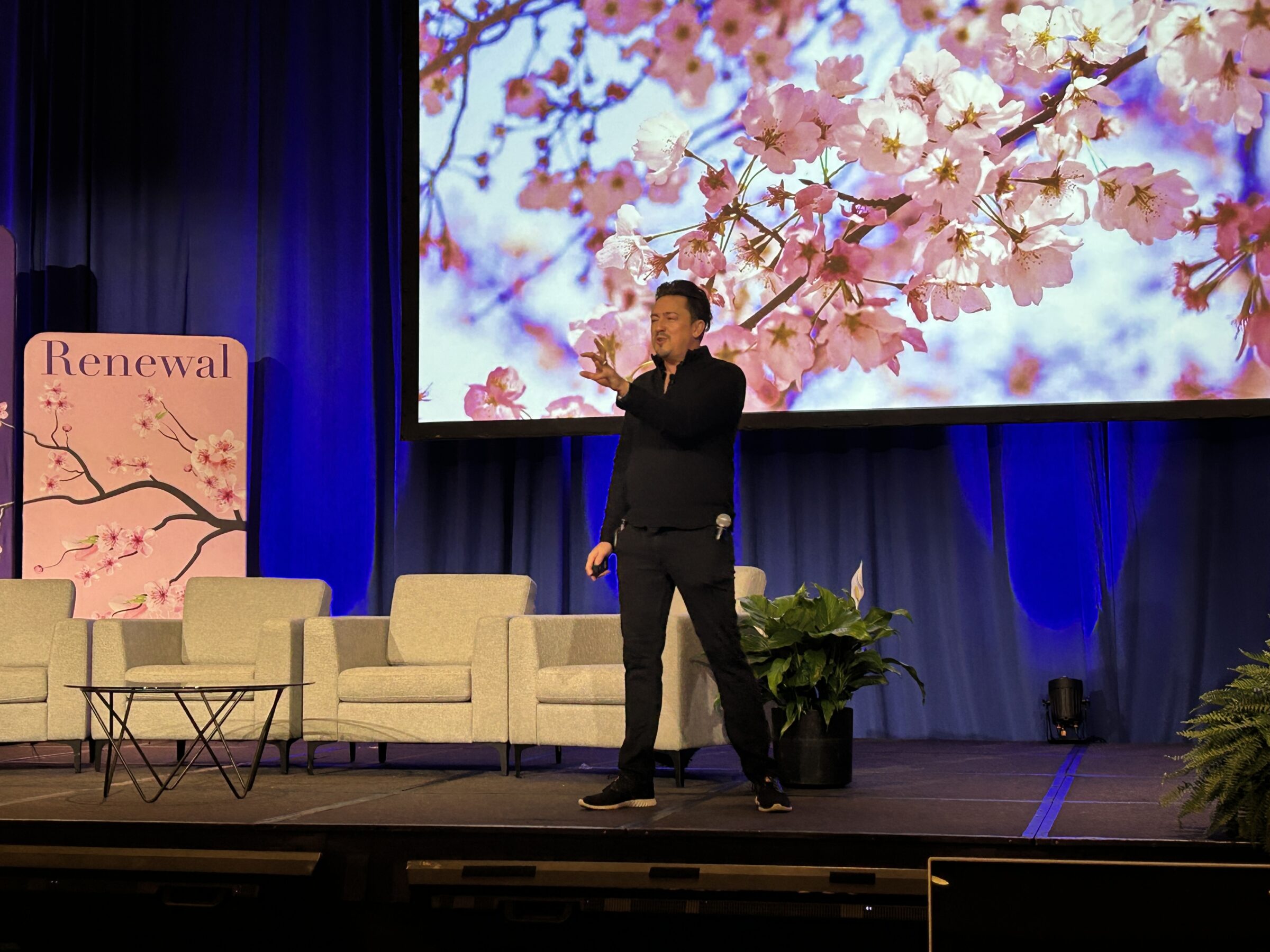



+ Show / Hide Comments
Share to: